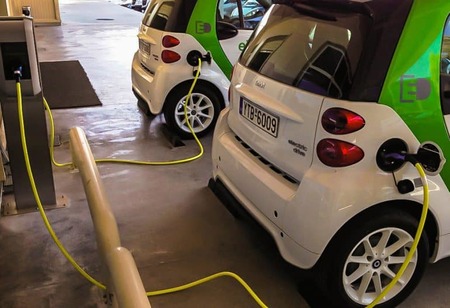Hero Electric, Mahindra Electric Mobility and Kinetic Green Energy and Power Solutions are among companies in discussions with Convergence Energy Services Ltd (CESL) for supplying electric two and three-wheelers as part of India’s biggest-ever push for green mobility, informed two people aware of the development.
The company, a subsidiary of Energy Efficiency Services Ltd (EESL), on Saturday inked an agreement to procure more than 30,000 electric two- and three-wheeler0s for Goa and Kerala.
Under the novel scheme, CESL intentions to supply 200,000 two-wheeled electric vehicles (EVs) and 300,000 three-wheeled EVs across India.
As per a report CESL’s plan to supply EVs to the two states in a boost to India’s green mobility play. CESL also strategies to lease out and operate three-wheeled EVs for the garbage collection fleet of municipalities across the country, counting for Pune Municipal Corporation.
“EVs and their ecosystem are new. Inputs from all are needed in a cooperative kind of way to help us all achieve this common goal of transforming our transportation system to electric," CESL chief executive and managing director Mahua Acharya spoke in an interview on Sunday.
Indeed, there is no commercial agreement with any of the EV manufacturers yet. “I am very happy with the way Kinetic and Hero have embraced this in a way that’s not just about selling product. We
have managed to strike our agreements on the sale of two- and three-wheelers with Kerala, Pune and Andhra Pradesh only because of this cooperative approach in their thinking," Acharya further said.
While Kinetic Green is appealed in supplying electric two- and three-wheelers, Hero Electric is intended in supplying electric two-wheelers. Mahindra Electric is considering electric three-wheelers space as part of CESL’s scheme.
EESL is a joint enterprise of NTPC Ltd, Rural Electrification Corp. Ltd, Power Finance Corp. Ltd and Power Grid Corp. of India Ltd.
The playbook also comprises building charging infrastructure in the states that would expected see the involvement of the respective state governments.
CESL on Saturday also inked partnership pacts with Fortum India, Bharat Electronics Ltd, JBM Renewables Pvt. Ltd and TVS Motor Co. for building electric mobility ecosystem in India. This involves establishing of public charging infrastructure including development of highway and expressway charge point operator, and park and charge facilities.
“EESL held initial talks with us about procuring electric two- and three-wheelers," stated a senior executive at an Indian automobile company, requesting anonymity.
Queries emailed to the spokespersons of Kinetic Green, Hero Electric and Mahindra and Mahindra on Sunday wasn’t replied till press time.
Around 22 million petrol-run two-wheelers are sold every year in India, which expended $101.4 billion on crude oil imports in 2019-20 and $111.9 billion in 2018-19.
CESL plans to halve the expanse of ownership of these vehicles through incentives offered under phase 2 of the Union government’s Faster Adoption and Manufacturing of Hybrid and Electric Vehicles (Fame) scheme, state government subsidies, provision from EV makers and carbon credits that will be earned under the United Nations’ Clean Development Mechanism.
“Availability of two-wheeler EVs and its associated infrastructure can garner widespread demand and popularity, especially in a state like Goa. We are happy to partner with CESL and are looking forward to escalate the progress in making Goa a green state," Nilesh Cabral, Goa’s power, environment, and new and renewable energy minister, notified in a statement on Saturday.
